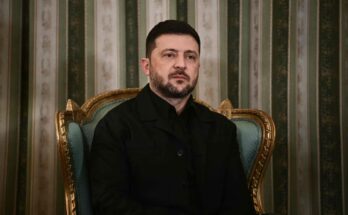“Conversation assumes that the other person is probably right.” This sentence of the philosopher Hans-Georg Gadamer is also often quoted by those who have nothing to do with hermeneutic circles and prefer not to discuss the 500 pages of Gadamer’s main work “Truth and Method”.
Most talk shows cannot be a conversation at all: their protagonists are active top politicians who see their natural goal in destroying their opponents by using argument, not in reaching a common understanding with them. A CDU representative who realized on a talk show that his Green Party colleague might have a better argument (or on the contrary), belongs to the world of fantasy. For the viewer, this has the advantage that different positions in the rhetorical competition often become clearer. Otherwise, the emphasis in a “talk show” is on the “show.”
“Sorry for saying that”
However, every few months, Caren Miosga wants to change something in the scheme of things. He does not plan his shows around top politicians (recently Wadephul, Klingbeil, Merz and Özdemir were guests one after another), but rather invites a group of experts, journalists or politicians from the second row to his studio. Whether he did this out of communications theory idealism or because no minister or party leader had the time remains to be seen.
At first glance, Sunday night’s event was closer than usual to Gadamer’s idea of open conversation. Guests included bestselling author Ferdinand von Schirach, ZEIT journalist Martin Machowecz and former Green Party leader Ricarda Lang. They all treat each other with great politeness, repeatedly agreeing with each other or asking for forgiveness when they contradict each other (“I’m sorry for saying that,” Schirach tells Lang twice). It’s clear that the interviewees are truly partners in the conversation and don’t just want to defend their own point of view, but are actually interested in finding answers together.
Lack of willingness to compromise as the main problem?
But the answer to what? The topic of the program was vaguely formulated: “Crisis of trust and culture of anger: Have we forgotten how to compromise?” Miosga cited a survey conducted by Infratest dimap, which stated that 79 percent of Germans do not trust conflict parties to compromise on important issues.
So is a lack of willingness to compromise the main problem in German politics? Considering the fourth black-red coalition in six legislative terms, that would be a bold thesis. Machowecz rightly points out that people who say they want more compromise are actually increasingly insisting on their own positions — so the problem lies at least as much with citizens as with politicians.
Ideas for constitutional reform
Thus, the opening question was no longer discussed, and the remainder of the program – it could not be more precise – was about German democracy. The most interesting impetus came from von Schirach, who put forward his ideas for comprehensive constitutional reform with the grandeur of a writer and the precision of a lawyer.
He appears to identify the lack of will to reform out of fear of voters as the fundamental evil of the current system. According to his idea, the Federal Chancellor should only be elected once in the future – but for seven years. Moreover, he should even be given the right to pass laws three times in those seven years without Parliament’s approval. Parliament can only repeal the law after a lapse of three years. To avoid continuous election campaigns, all state elections will be held on one day in the future.
Does democracy have an input or output problem?
Von Schirach’s ideas are worth discussing in detail. Because, as Lang notes, these things raise the interesting question of whether Western democracies today have an “input problem” or an “output problem.” Most importantly, do citizens want to be more involved in political decision-making, for example in the form of parliamentary groups and referendums? Or do they ultimately not care how decisions are made, as long as they are right – and might politicians make better decisions in the long run if they pay less attention to people’s short-term concerns? To overcome the crisis of democracy, it could be said that some are demanding more democracy, others are demanding less democracy. Schirach seems to fall into the second group.
Of course, Miosga chose to answer a number of other questions that are discussed week after week in contexts like this: whether the AfD is still a protest party, to what extent a ban would be the right way to deal with it, and what role social media will play in the rise of extreme politics. Of course, the coalition’s latest proposed pension dispute remains to be discussed.
According to the ancient Greek poet Archilochus, the fox knows many things, but the hedgehog knows one great thing. It’s not just in this show that Miosga would have succeeded if he wanted to be more hedgehog and less fox. Successful conversations require not only open-minded discussion, but also strict moderation.



